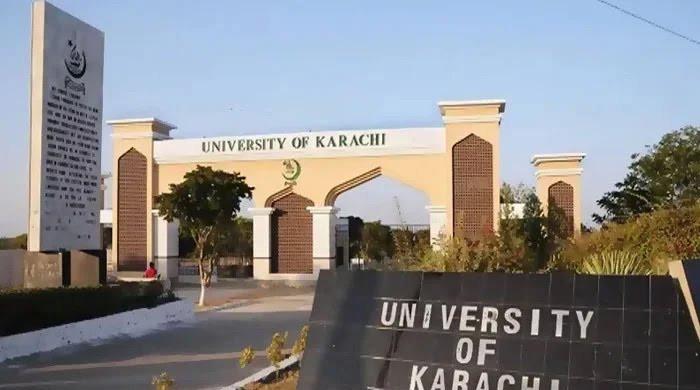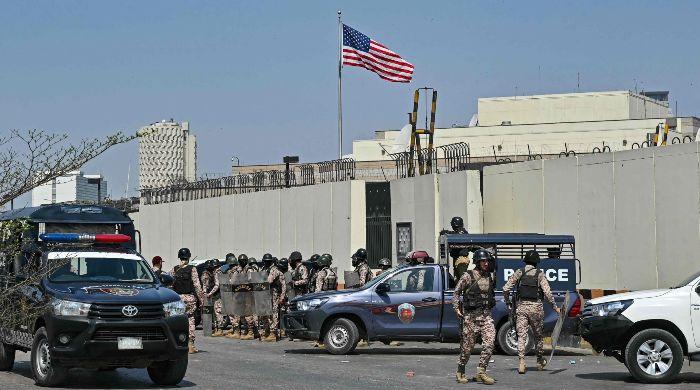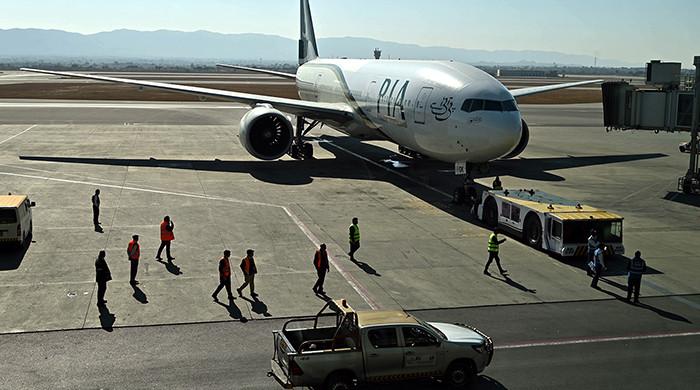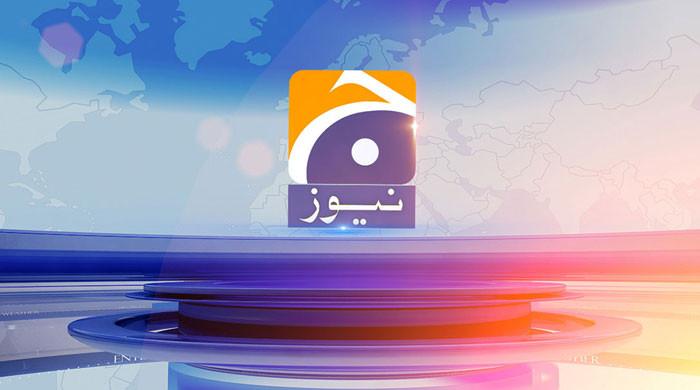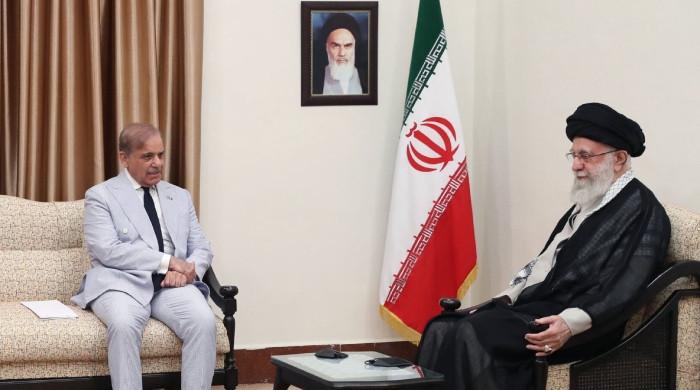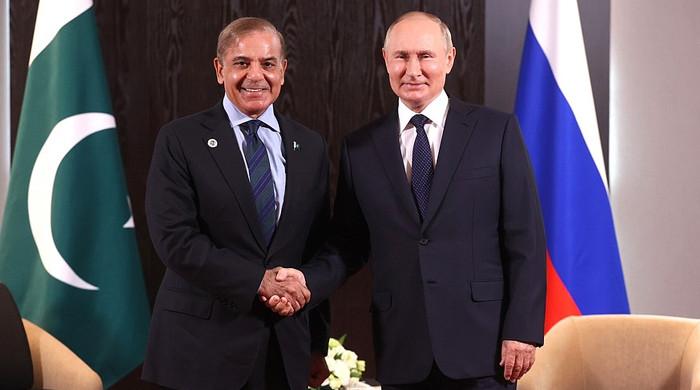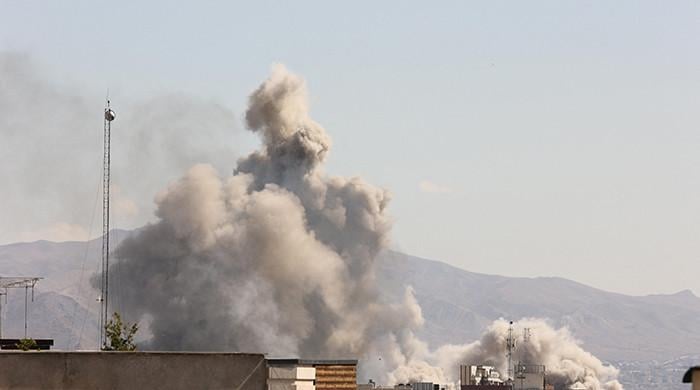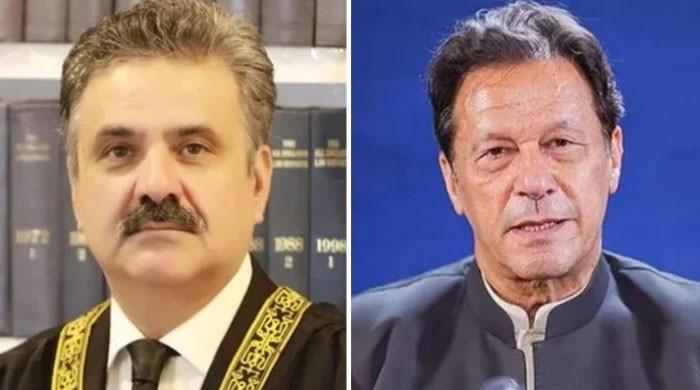International Day to End Impunity for Crimes against Journalists being observed today
Two dozen Pakistani journalists were prosecuted under Prevention of Electronic Crimes Act in the last two years
November 02, 2021
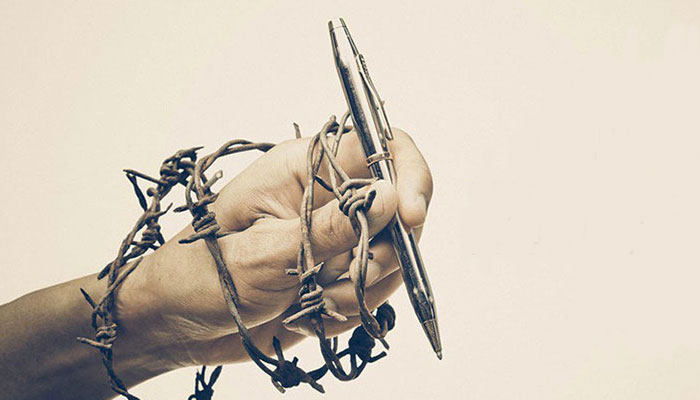
- International Day to End Impunity for Crimes against Journalists is being observed worldwide, including in Pakistan, today.
- At least 62 journalists were killed just for doing their jobs in 2020 alone, says UNESCO.
- Around two dozen Pakistani journalists were charged in the last two years and most of them were prosecuted under the PECA.
KARACHI: In a bid to raise awareness and formulate ways to stop crimes against media persons, International Day to End Impunity for Crimes against Journalists is being observed worldwide, including in Pakistan, today.
The International Day to End Impunity for Crimes against Journalists is an UN-recognized international day observed annually on November 2.
According to UN cultural agency UNESCO, at least 62 journalists were killed just for doing their jobs in 2020 alone. Between 2006 and 2020, over 1,200 professionals lost their lives the same way. In nine out of ten cases the killers go unpunished, said UNESCO.
This year, the International Day to End Impunity for Crimes against Journalists is highlighting the important role of prosecutorial services, not only in bringing killers to justice, but also in prosecuting threats of violence.
Two dozen Pak journalists prosecuted under PECA in two years
Around two dozen journalists were charged in the last two years and most of them were prosecuted under the Prevention of Electronic Crimes Act, said a report of the Freedom Network, launched on the eve of the day.
Section 20, which criminalises online defamation, and carries a three-year jail term, and up to one million rupees in fine, is the most frequently invoked section of the PECA against journalists.
“Opinions or criticism of the military and the intelligence agencies is the most frequent complaint against journalists pursued under the PECA. Criticism in general – whether against the executive (both civilian and military) or the judiciary triggered the most complaints against journalists pursued under the PECA law. The prime nature of the complaint was alleged defamation,” it reads. The majority of the journalists were from Punjab.
Iqbal Khattak, the executive director of Freedom Network, said Pakistani journalists are increasingly using online spaces to share independent news and critical commentary that is suppressed on traditional media.
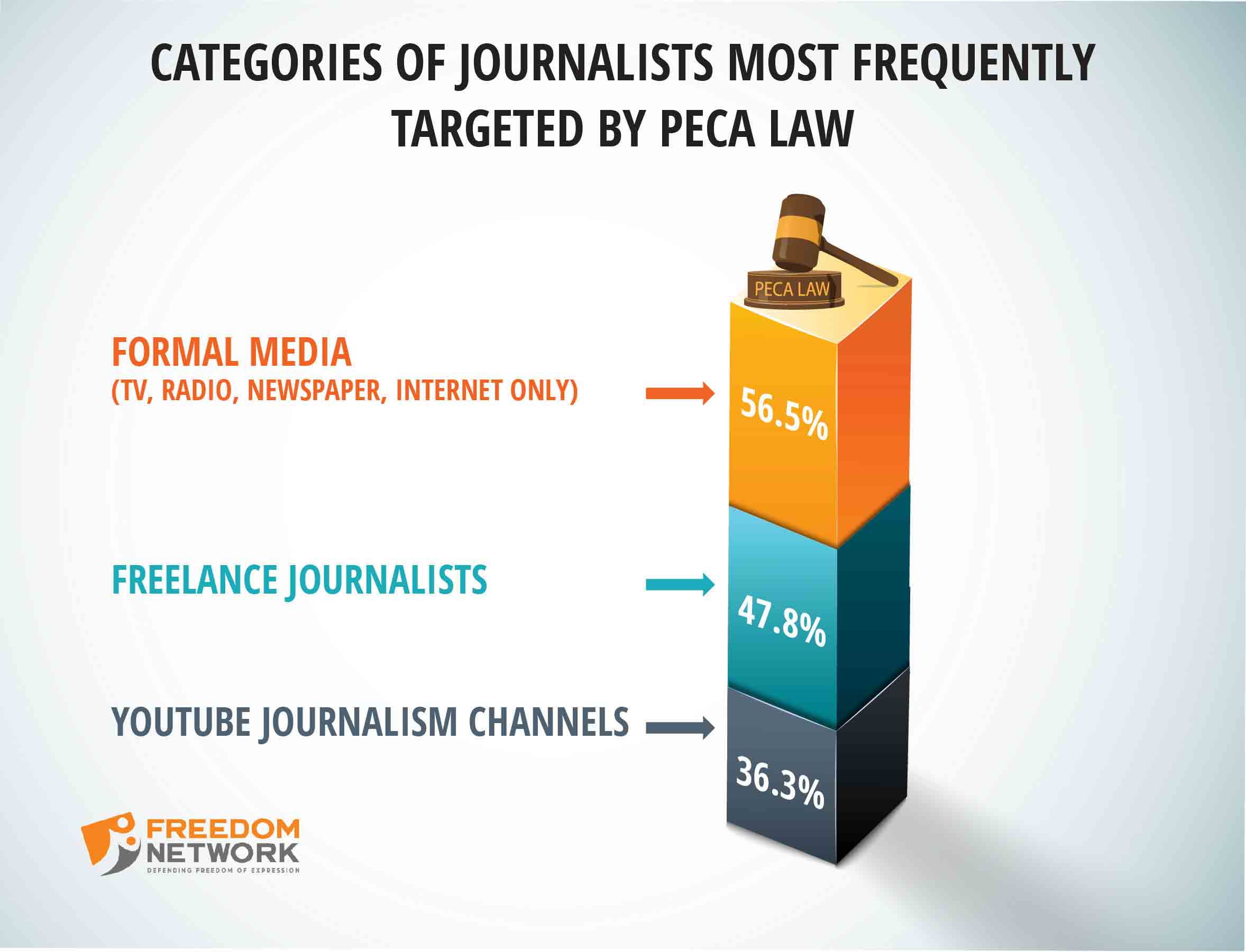
“We have noticed a corresponding increase in efforts to control online expression, either legally or through coordinated digital campaigns against journalists,” he said. The report supplies evidence that the PECA has emerged as the primary legal instrument to intimidate and silence Pakistani journalists in recent years because it criminalises online expression.
The report’s findings are based on the analysis of cases of 23 journalists and information practitioners who were either sent notices by the Federal Investigation Agency (FIA) under PECA or charged with offences under the same law during the period 2019-21. The analysis was done on data, provided by these journalists and information practitioners through a special impunity measurement template, based on the comprehensive Impunity Index developed by the Freedom Network.
The analysis found that the cases were registered against 56% of journalists and informational practitioners who had a brush with the PECA between 2019 and 2012. Out of the individuals who were formally charged, around 70% were arrested and half of them were subjected to torture in custody.
The Freedom Network 2021 Impunity Report provides insights into the challenges faced by journalists and information practitioners in Pakistan charged under the PECA, the arbitrary exercise of power by the authorities and the response of the justice system.
Key findings suggest that Punjab has turned out to be the most dangerous region for journalists when it comes to being targeted under the PECA as 10 of the 23 reported cases were from Punjab; Islamabad followed with eight cases.
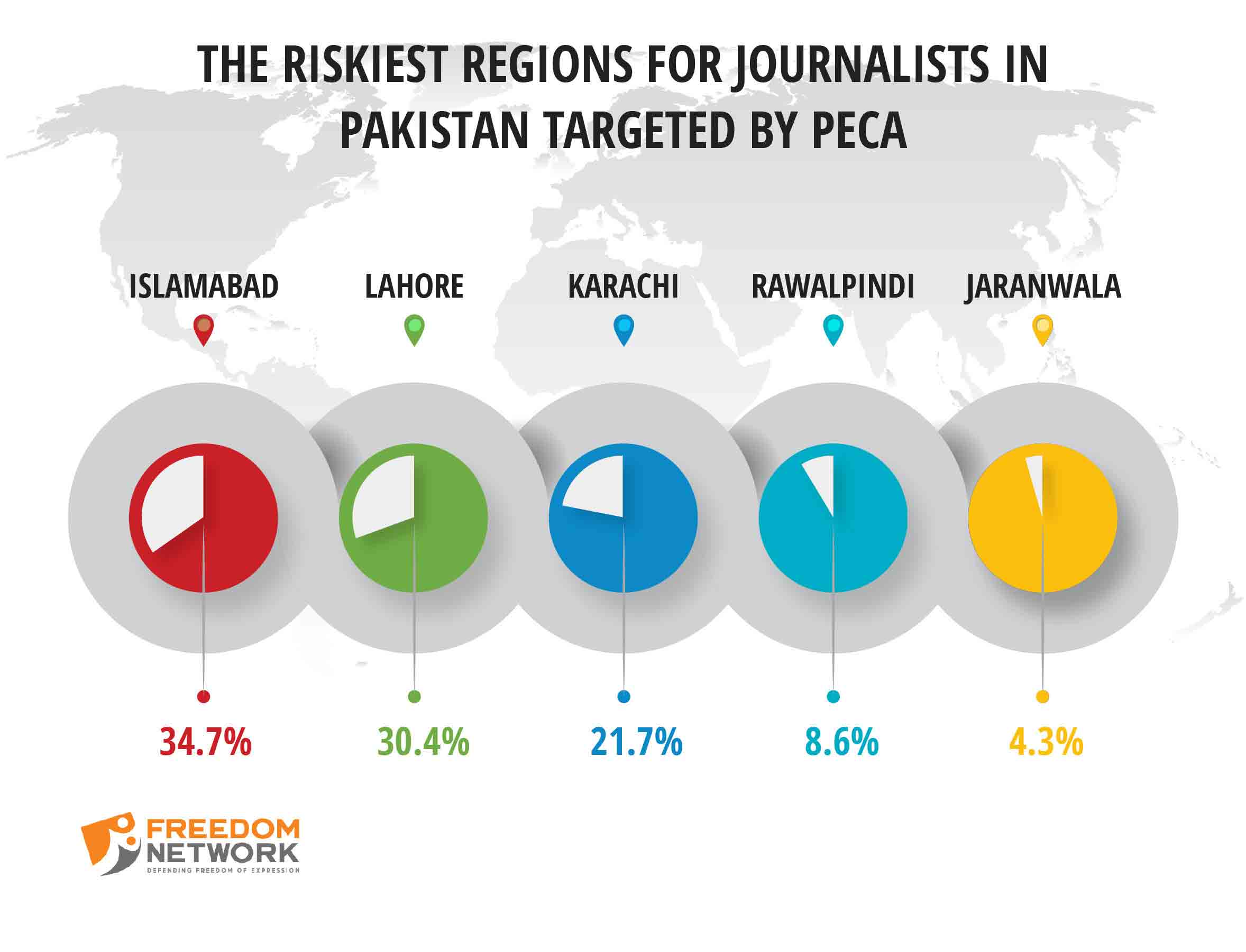
As far as the complainants are concerned, two-thirds of them are private citizens whereas opinions or criticism of the military and the intelligence agencies is the most frequent complaint pursued under the PECA.
Nearly half of all journalists formally charged under PECA law as well as under other laws were arrested; two-thirds of all the arrested journalists managed to secure bail after their arrest but some had to spend time in custody ranging from a few days to some weeks. Journalists working for formal media or as freelancers are almost equally likely to be targeted under the PECA; over a third of the freelancers targeted operate their own YouTube channels.
Over half of journalists served notices by the FIA under PECA did not approach the courts to challenge them and therefore are denied legal recourse to justice. Around a third of the journalists invoked the legal process to resist the FIA notices. Most complainants against journalists charged under the PECA sought punishment rather than settlement. Around 40% of the complainants against journalists charged under the PECA sought written and published apologies.
Online harassment and attacks against journalists in Pakistan
The Pakistan Press Foundation (PPF), too, released two reports detailing the abysmal situation for journalists in connection with the ‘International Day to End Impunity for Crimes against Journalists’.
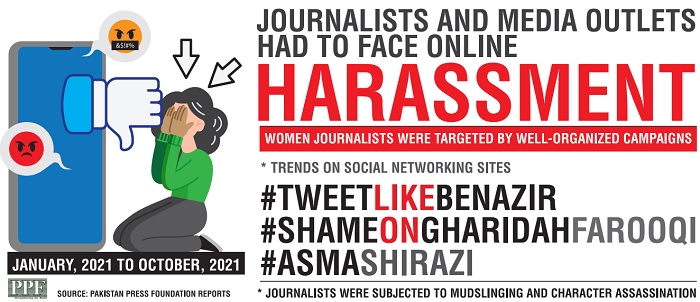
In PPF's first report, ‘Online harassment of the media in Pakistan’, it was stated that journalists were often on the receiving end of hate, threats and abuse from a range of individuals.
You can read the full report below.
The other report, ‘Attacks on Media in Pakistan January-October 2021’, prepared by the PPF, deplored the shrinking space for free expression in Pakistan.
You can read the full report below.




